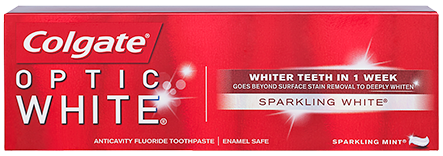 Top Class Action Lawsuits
Top Class Action Lawsuits
Ruby Tuesday Not Serving Up Overtime Pay? Employment—of the largely unpaid variety—was a bit of a theme song this week. Among the chorus is an unpaid overtime class action filed against the Ruby Tuesday national restaurant chain by two former employees who allege they were denied overtime pay.
Specifically, Oscar Sagastume of Meriden and Kevin Gibson of New York filed the lawsuit in U.S. District Court on May 19 to “recover unpaid overtime compensation for themselves and similarly situated employees as a collective action under the Fair Labor Standards Act (FLSA). Additionally, Sagastume and any other Connecticut plaintiffs also assert violations of the Connecticut Minimum Wage Act.
The Ruby Tuesday lawsuit states that the former Ruby Tuesday employees worked many 50-hour or more weeks without proper compensation. “Defendant was aware that plaintiffs and the class members worked more than 40 hours per workweek, yet defendant failed to pay overtime compensation for hours worked over 40 hours in a workweek,” the lawsuit alleges. “Defendant did not keep accurate records of hours worked by the plaintiffs or the class members.”
In the complaint, Sagastume claims he worked for the national restaurant chain from February 2011 to April 2015. He worked at several locations across Connecticut as an assistant manager and frequently worked more than 40 hours a week.During the week of February 8, 2015, he worked “approximately 60 hours” but was only paid for 40. He claims that on average he worked between 57 and 62 hours per week.
“Ruby Tuesday required plaintiffs and [assistant managers] to work long overtime hours without paying them any overtime compensation,” the complaint states. “Ruby Tuesday classified all of its (assistant managers) as ‘executives’ and treated them as exempt from the overtime requirements of federal and state laws.”
Further, the lawsuit states that while assistant managers earned about $37,500 annually, job duties for both Sagastume and Gibson required them to do the same as the hourly employees, who were given overtime pay, such as greeting and waiting on customers, serving food, cooking and preparing food, clearing and setting tables and cleaning the restaurant.
The suit claims Ruby Tuesday willfully misclassified Sagastume, Gibson and other assistant managers as employees who are exempt from FLSA protection and failed to properly record the hours worked by their employees. “Defendant’s unlawful conduct has been widespread, repeated and consistent,” the lawsuit alleges.
Heads up—the lawsuit is looking to represent others similarly situated including managers, such as those running the kitchen and guest services, and for the Connecticut class action allegations, any assistant manager who worked in Connecticut from May 19, 2014, to the date of final judgment, if one is given.
Top Settlements
Kmart Got a Damage Bill this week to the tune of $3.8 million. No stranger to employment lawsuits, the discount retailer agreed to settle this latest, effectively ending two collective actions brought on behalf of assistant managers who allege they were wrongly classified as exempt from overtime pay, in violation of the Fair Labor Standards Act (FLSA) and state labor laws.
What’s the betting the FLSA is one of most frequently cited pieces of law in class actions today…
The class is estimated to include some 422 people, with each plaintiff receiving roughly $9,000, depending on how long they worked for the company. Additionally, it provides $7,500 for each of the four named plaintiffs.
The Kmart settlement motion seeks preliminary certification of the class and scheduling of a final approval and fairness hearing. The settlement would encompass a suit filed in the U.S. District Court for the District of New Jersey, Fischer v. Kmart, and another in the Western District of New York, Hautur v. Kmart.
While unhappy class members will have the opportunity to opt out of the settlement, if the unhappiness total reaches more than 5 percent of class members, will have the opportunity to terminate the settlement, according to court documents. And everyone’s a winner…
And now for something completely different…
Blue Buffalo Pet Food Settlement…A $32 million settlement has been approved in a consumer fraud class action lawsuit pending against Connecticut-based Blue Buffalo, a well known maker of “natural” pet food—whatever that means—which was the subject of the lawsuit.
The class actions, brought by consumers in several lawsuits across and country and which were consolidated into Multi District Litigation in 2014, alleged that certain Blue Buffalo products were not consistent with its “True Blue Promise.” The label indicates the products contain no chicken by-product, along with no corn, wheat, soy or artificial flavors, colors or preservatives. However, this, consumers claimed, was not the case, stating they paid a premium for the pet food products, but were misled. A total of 13 class actions were brought against Blue Buffalo over its alleged false advertising.
The Blue Buffalo settlement, originally reached in December 2015, will provide customers who filed a claim but couldn’t provide a receipt, with up to $100. Customers who filed a claim and have receipts will receive up to $2,000.
Full details available at – https://www.petfoodsettlement.com/.
According to Blue Buffalo, they are not guilty of any wrong doing, stating that it was defrauded by a supplier that provided its chicken byproduct.
Ok, that’s a wrap folks…Have a good long weekend. See you at the Bar!

 Top Class Action Lawsuits
Top Class Action Lawsuits Top Class Action Lawsuits
Top Class Action Lawsuits Top Class Action Lawsuits
Top Class Action Lawsuits